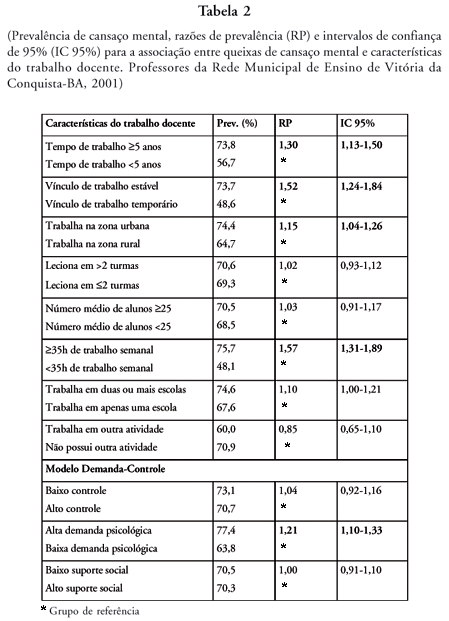An epidemiological cross-sectional study among the 808 teachers from Vitória da Conquista, State of Bahia, Brazil, revealed that most of them complained of mental tiredness (70,1%) and nervousness (49,2%). Several risk factors were statistically associated with mental tiredness and nervousness: age > 27 years, being female, having children, having secondary education, teaching for >5 years, stable job, working in urban areas, weekly work hours e"35 hours, income > BRL 360 (± USD 185), medium/high domestic overload, having no leisure activity, high psychological demand at work and low social support. According to Karasek's demand-control model, teachers' work was classified in the "low strain" (40.3%) and "active work" (39.7%) quadrants, both with high control of activities by teachers. Teachers with "high strain" and "active work" presented higher prevalence of mental tiredness and of nervousness than those with "low strain" jobs.
Teachers' health; Teaching discomfort; Burnout and Teachers; Teaching work; Education and health






